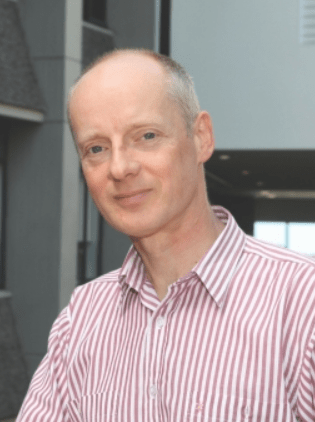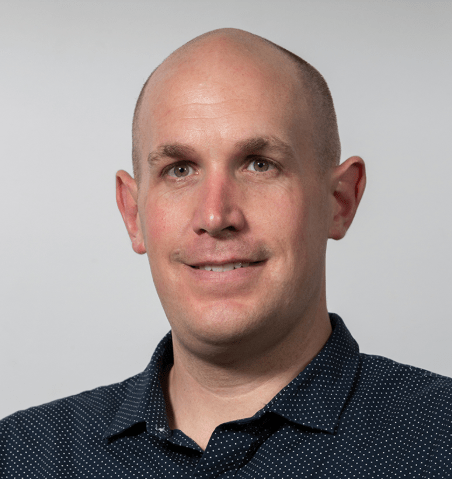Co-Director
Professor Cris Print
Cris is a Kiwi medical scientist who graduated in Medicine from the University of Auckland in 1989 and began research while working as a house surgeon in Dunedin, NZ. A PhD in the University of Auckland under the supervision of Geoff Krissansen and Jim Watson led to a four-year postdoctoral fellowship in the Walter and Eliza Hall Institute in Melbourne, Australia using genetic modification techniques to study development and cell death with Suzanne Cory and Jerry Adams. He then spent six years in Cambridge University, UK, in the Department of Pathology working with Andrew Wyllie and as a Fellow of St Edmunds College, developing a deep interest in genomics and bioinformatics. While there he co-founded a bioinformatics biotechnology company that became listed on the Tokyo stock exchange in 2007.
In late 2005 Cris returned to the University of Auckland where he leads a cross-disciplinary research team of clinicians, biologists, data scientists and statisticians who use genomics, systems biology and bioinformatics to better understand human disease, especially cancer. He leads the Genomics Into Medicine Strategic Research Initiative in Auckland and Chairs the Auckland Regional Tissue Bank Scientific Advisory Board. He is a Director of the NZ Institute of Environmental Science and Research (ESR) and is Vice President of the Auckland Museum Institute (the Auckland branch of the Royal Society of NZ), a Principle Investigator in the Maurice Wilkins Centre and member of the Science Leadership Team of the ‘Healthier Lives’ National Science Challenge. Previously, he served as President of the NZ Society for Oncology and was Director of the Bioinformatics Institute at the University of Auckland.

Co-Director
Associate Professor Justin O’Sullivan
Justin completed his PhD at The University of Otago with Richard Cannon in 1998 then held postdoctoral positions in the laboratories of Professor Mick Tuite (University of Kent) and Professor Nick Proudfoot (University of Oxford). He returned to New Zealand in 2004 to take up a faculty position at Massey University, receiving a Massey University Early Career Research Medal (2005). Justin was awarded the Life Technologies Award for excellence in molecular biology research in 2010 and in 2012 moved to the Liggins Institute, becoming Associate Director for Research at the Liggins in 2016.
His research group develops and uses methods and technologies from molecular biology, bioinformatics, and computational biology to integrate the spatial organization of genomes with measures of their function. Currently, his team is focussing on understanding development, diseases and the human microbiome. Specifically: 1) co-morbidity and how single nucleotide polymorphisms work together to contribute to complex diseases; and 2) the manipulation of the microbiome and its relationship to host genetics. Justin and colleagues have recently been awarded funding from the Michael J. Fox Foundation and the Silverstein Foundation to examine whether alterations in 3D organization of the genome contribute to Parkinson’s disease (more details are available here).

Dr Ben Lawrence – Clinical Senior Research Fellow
Ben first graduated from the University of Otago with a BSc with first class honours and an MSc with Distinction. He then completed his medical degree at the University of Auckland in 2003 and registered as an oncology specialist in 2011. He completed fellowship training in the USA. In 2008 he was a Drug Development Scholar at the Translational Genomics Research Institute (TGen) in Scottsdale Arizona, USA. From 2009 he was the Murray Jackson Clinical Fellow, completing a two-year Research Fellowship at Yale University in Connecticut, USA. During Ben’s time at Yale he studied neuroendocrine tumours (NETs) – a type of pancreatic cancer usually occurring in the gut or the lung.
Ben co-directs an integrated research and clinical programme called NETwork! with Professor Cris Print as a translational partner. The Network! team undertake multi-level tumour sequencing of NETs looking for predictive biomarkers informed by genomics.
Dr Lawrence is the immediate past-President of the New Zealand Society for Oncology. He collaborates with cancer researchers in Australia, USA, and Europe, and is Principal Investigator on several multinational and collaborative group trials. His clinical and research work explores precision medicine in cancer care.

Professor Stefan Bohlander
Stefan studied medicine at Freiburg University before moving to the USA where he began research looking at chromosomal changes in leukaemia at the University of Chicago, working with Janet Rowley and Manuel Díaz (Rowley’s discovery of chromosome translocations in acute myeloblastic leukemia and chronic myelogenous leukemia in the 1970’s provided the first solid evidence of a genetic basis for cancer). Returning to his native Germany, Stefan joined the Institute of Human Genetics at the University of Göttingen, was a Professor of Molecular Haematology and Oncology at the University of Munich and prior to relocating to NZ was the Director of the Institute of Human Genetics at Philipps University Marburg.
Stefan is the first holder of the Marijanna Kumerich Chair in Leukaemia and Lymphoma Research in the Department of Molecular Medicine at the University of Auckland. He has worked in the field of Next Generation Sequencing for more than 10 years both for the discovery of somatic mutations in blood cancers and the discovery of germline mutations in inherited conditions. He has authored more than 20 publications based on NGS results and holds a board certification in Human Genetics. Additional information about Professor Bohlander’s research can be found here.

Dr Kimi Henare
Dr Kimi Henare (Te Aupouri, Te Rarawa), PhD, MHSc, BSc, is an emerging biomedical research scientist at the Auckland Cancer Society Research Centre (ACSRC), Te Kupenga Hauora Māori, and the Department of Oncology at the Faculty of Medical & Health Sciences, University of Auckland. His main research focusses on the complex microenvironment of tumours, to identify new strategies for treatment or combination with immunotherapy. He completed his PhD in 2014 at the University of Auckland, and recently spent two years as a visiting postdoctoral scholar at the University of Calgary, as part of his Eru Pomare Postdoctoral Research Fellowship funded by the Health Research Council of New Zealand.
In addition to his biomedical science expertise, Kimi is actively involved in building Māori health research capacity through mentoring Māori & Pasifika biology students, and serving as faculty for the Summer Internship for Indigenous Genomics (SING) Aotearoa. He holds advisory and governance roles for clinical genomics research at the University of Auckland, including a nationwide study of Neuroendocrine Neoplasia in New Zealand

Numerous other clinicians and researchers both inside and outside Auckland have also contributed strongly to shaping the Genomics into Medicine program and are driving this initiative.